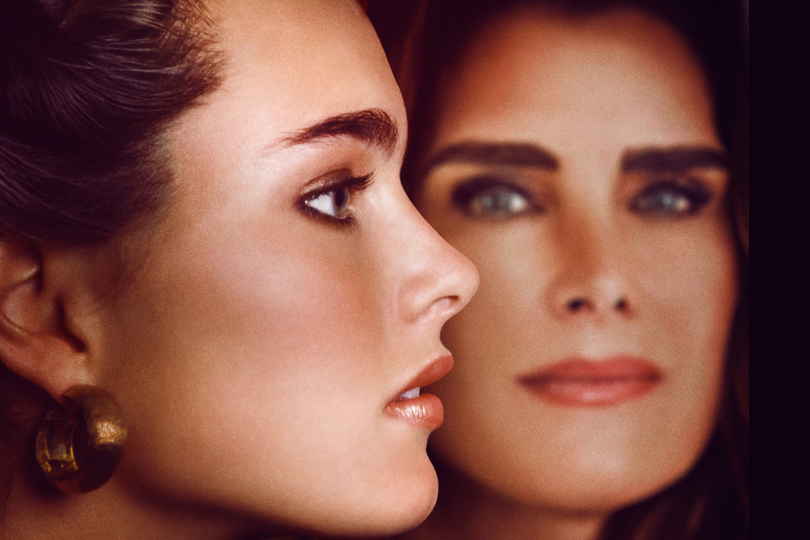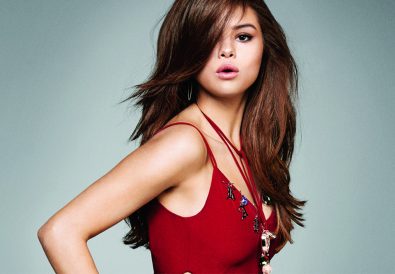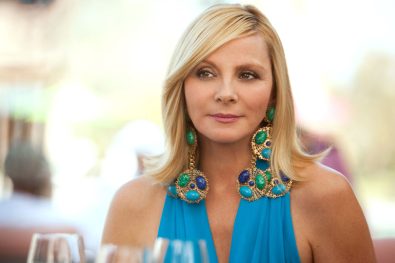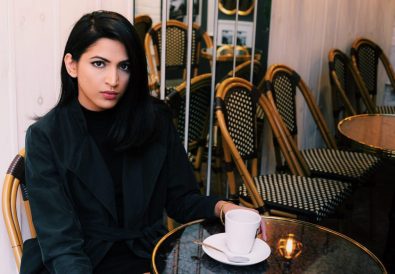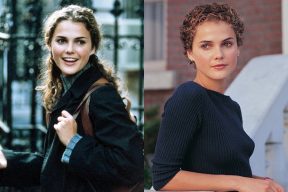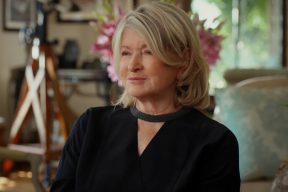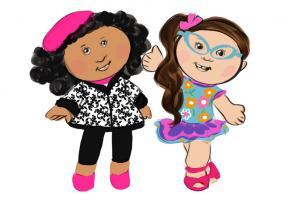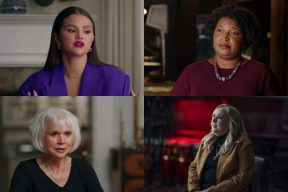The model, actress, and advocate reclaims her narrative in two-part documentary…
By Michele Yeo
Pretty Baby: Brooke Shields, a new film chronicling the life and career of one of the most photographed women in the world opens with a prepubescent Brooke as a guest on The Mike Douglas Show. The program’s eponymous host (who looks to be in his mid-to-late 50s at the point) says, “You really are an exquisite-looking young lady. I know you’ve been told that but isn’t she a pretty, pretty girl?” as the studio audience applauds. A young Brooke sits there and ekes out an awkward smile. It’s the first, but certainly not the last cringeworthy moment in this two-part doc documentary now streaming on Disney Plus.
Brooke Shields was put into modeling and acting when she was just 11-months-old, appearing in a series of commercials for toothpaste, hair products, and much more. A vintage interview with Brooke’s mother Teri features the single mom turned momager saying she knew early on her daughter would one day find herself in front of the camera, declaring that from the day she brought Brooke home from the hospital, “I just knew she’d be a star, a star!” Mom wasn’t wrong, but that doesn’t mean the way she got her daughter there was right. In fact, watching the documentary it’s tough not to feel like what Brooke’s mother did was, at best, a series of ill-advised, shortsighted decisions and, at worst, borderline illegal and predatory, feeding her daughter to the wolves in the pursuit of fame and money. “I think Brooke is like a work of art,” Teri, now deceased, says in another old interview. “And like any beautiful painting, I think the world should enjoy Brooke and view her.”
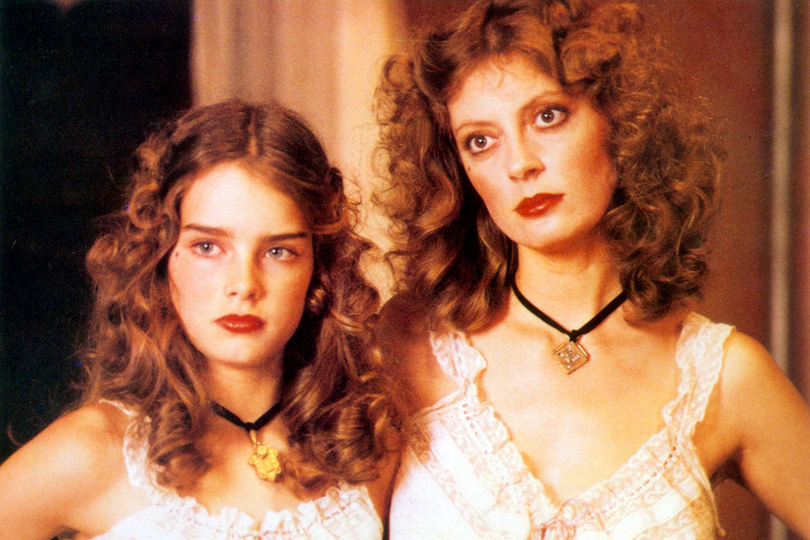
And boy was Brooke viewed. By millions around the world. Just how she was viewed is what’s disturbing. In 1978, when Brooke was just 12-years-old, she appeared in the movie Pretty Baby, playing a young girl who grows up in a New Orleans brothel and who is eventually forced into prostitution by her mother. One scene features men bidding for her with Brooke getting carried off by the winner who pays $400 for her. The movie called for Brooke to be topless and to have her first ever kiss with co-star Keith Carradine who was 30-years-old at the time. When Brooke, who again, was a pre-teen and who had never kissed anyone, would “scrunch up her face” during the scene, director Louis Malle (who, himself, was about 45-years-old) would become frustrated with her.
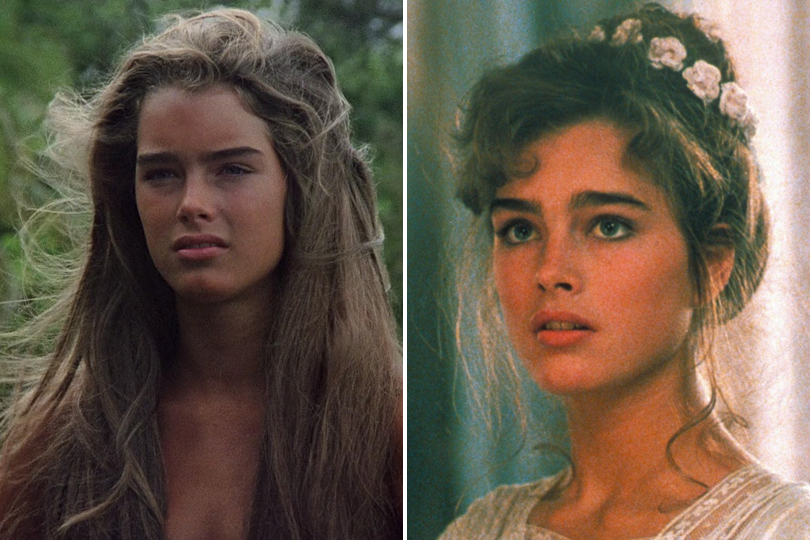
Pretty Baby wasn’t the only gig that required Brooke to be overtly sexual at a young age. She would go on to star in both 1980’s The Blue Lagoon and 1981’s Endless Love which called for nudity and sex scenes all before Brooke was old enough to drive. The latter was particularly traumatizing for Brooke. During a talk show appearance to promote Endless Love director Franco Zeffirelli (who was the ripe old age of 58 at the time) says about Brooke, “I was in love with her before I met her.” Brooke feigns a temporary smile but then immediately shoots him daggers. The filmmaker then regales the studio audience with a story of how he would painfully twist teenage Brooke’s toes while filming sex scenes to elicit expressions of carnal pleasure from her face. In a talking head interview, a present day Brooke admits, “I didn’t trust the director to create a safe environment for me,” adding, “his thing was, ‘’the look on your face has to be ecstasy’ and I was like, ‘I don’t know what that is!’ “I didn’t want to appear stupid or untalented so I just disassociated.” This wouldn’t be the last time Brooke’s emotional self disassociated from her physical self as a form of psychological protection.
In 1980, Brooke Shields was everywhere. Not only did she have movie credits on her resume, that year alone she appeared on the covers of 11 major magazines including Time. Her fame went stratospheric thanks to a campaign with Calvin Klein jeans where a 16-year-old Brooke famously purrs “nothing comes between me and my Calvins.” Brooke admits she didn’t think there was anything suggestive about the ads at the time, “there was nothing in me that ever had the idea that it was sexual. I mean, that’s slightly naive.” There was some backlash about the ads but they were also effective. In just 90 days the campaign helped boost Calvin Klein sales by more than 300 per cent and People magazine featured the designer and his teen muse on its cover.
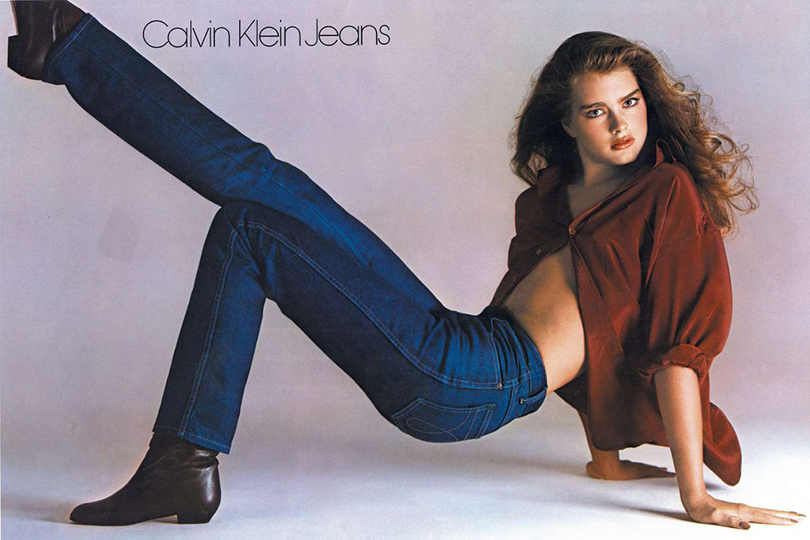
Equally unsettling as her sexually-charged roles, was the language the media used to describe Brooke Shields. One newspaper referred to her as, and I shit you not, “America’s Newest Sexy Kid Star.” I’m sorry, but the words “sexy” and “kid” should never find themselves that close together. Another article from when Brooke was just nine-years-old features the headline “Pinning Down The Youngest Pinup In the US” and goes on to call her “a mini Marilyn Monroe” and that, “her name is Brooke Shields and at the flat-chested age of nine, she is America’s up-and-coming fast sex symbol.” I’m sorry, what the Jared from Subway is this shit? Another sentence actually features these words in this order: “Meeting this nine-year-old who drives men of 30 to distraction.” Excuse me? Was Jeffrey Epstein moonlighting as a news reporter in the early ‘80s? How was the author of this piece not immediately placed on an FBI list? It’s nothing short of flabbergasting to look at these media pieces through a 2023 lens.
While she was definitely one of the most famous teenagers in the world, Brooke didn’t see herself as any sort of sex symbol. “All of those things that were associated with me being these sexy personas, just didn’t feel like who I really was.” It may not have been who she was but it was most certainly how she was marketed. And it’s impossible to ignore her mother’s hand in that given she was also her manager. “I didn’t blame my mom,” says a present day Brooke, “but I wish she had a little bit more ‘let’s see what this is going to mean, and would this come back to bite us?’”
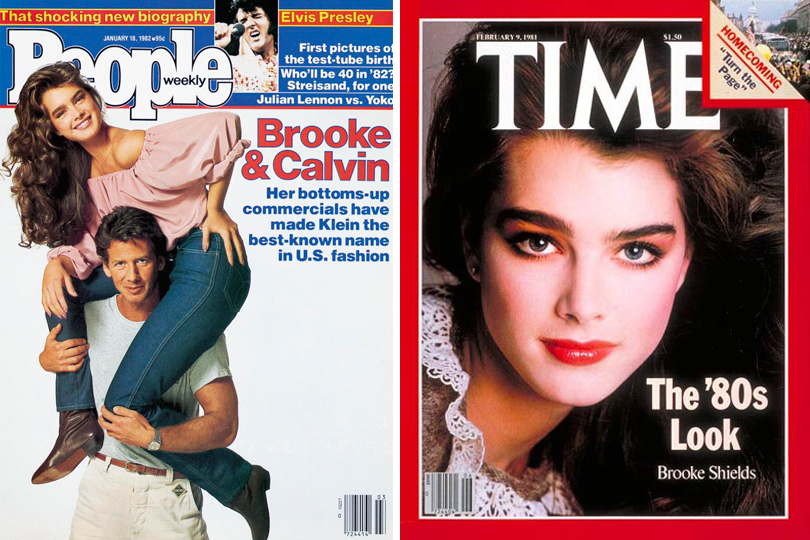
And eventually, when Brooke was 16-years-old, something did come back to bite them. A photographer, an aptly named Garry Gross, who had, with her mother’s permission, taken photos of a naked Brooke when she was nine, wanted to sell said photos. Given Brooke’s superstar status, the photos of the pretty baby were set to fetch a pretty penny. Brooke’s mother (who again, inexplicably consented to photos of her naked daughter standing up in a bathtub being taken) sued the photographer. The trial, of course, made headlines. A teenaged Brooke sobbed on the stand for two days as lawyers asked her questions like, “do you want to be known as a sexy symbol now?” and “did you want to be known as a sex symbol then?” Pardon me? At nine?! The photographer’s lawyer maintained Brooke had “sought and acquired the image and persona of a Lolita and a femme fatale and a vamp…she is portrayed as young vamp and a harlot and seasoned sexual veteran,” as some sort of demented defense for selling naked photos of a literal child.
It’s no surprise when, after high school and years of commodification, Brooke fled the industry for Princeton University to enjoy a brief respite from being the objects of so many gross older men’s affections. But even getting into a prestigious Ivy League university didn’t inoculate Brooke from comments about her body and sexuality. In one of his The Tonight Show monologues, Johnny Carson jokes, “She’s a freshman at Princeton University and she’s doing very well in her classes. As a matter of fact, her biology professor gave her an A in anatomy. Hers.” Sir, that joke is a C- at best. If you’re going to be sexist, at least have some clever material. Especially when disparaging a student of a University into which you’d likely never have been accepted.
Even as a Princeton student relatively out of the public eye, Brooke’s sexuality continued to be a topic of discussion. When she admitted to being a virgin, that became public fodder. Suddenly, the tiny temptress and femme fatale was positioned as a prude. She was asked in interviews if she was a “goody two shoes” with one interviewer inquiring, “how are things in the nunnery?” Brooke, being a woman, truly could not win. She was damned if she did and damned if she didn’t. The obsession with Brooke’s virginity saw her become some sort of beacon of purity. So much so that when she finally did have sex with her college boyfriend Dean Cain, she couldn’t truly enjoy it, feeling like she was betraying people. “I feel bad for that girl,” says Brooke about her younger self. “She was old enough to own her own body,” adding, “what it boils down to is regret for lost exploration and lost opportunity to understand my personal sexuality.” Because Brooke’s sexuality had never really belonged to her.
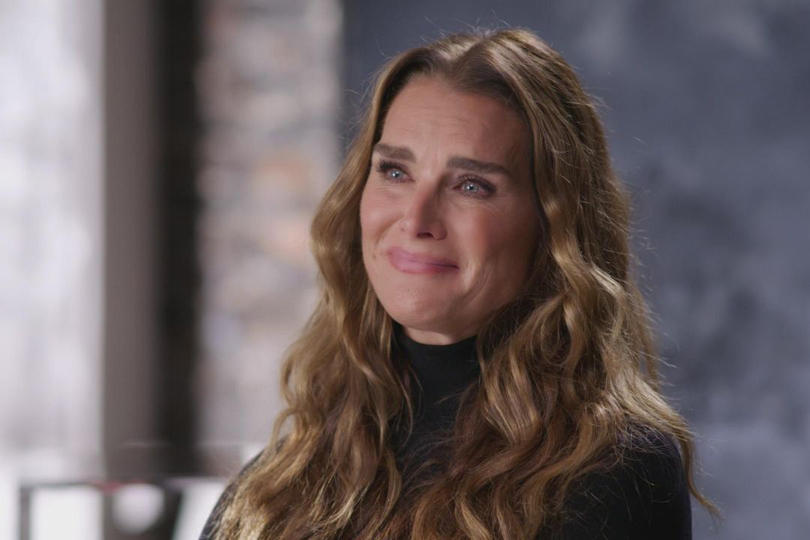
When Brooke was in her early 20s, having graduated from Princeton and looking to restart her acting career, she was sexually assaulted by an unnamed Hollywood executive in a hotel room. Once again, she disassociated from her much-talked about body, “I just thought ‘stay alive and get out’ and I just shut it out.” Brooke’s complicated history with sexuality didn’t help and she initially blamed herself, “I believed somehow I put out a message and that’s how the message was received.”
Now 57, Brooke is a mother herself to two teenage daughters Rowman and Grier. The girls, 19 and 16 respectively have no interest in revisiting their mother’s early movies. “I see Pretty Baby edits on TikTok and it makes me not want to watch it,” declares Grier during a family dinner. “The movie itself is about something that’s not okay.” Brooke’s daughters seem to have a clear understanding of how their mother was wronged for being packaged and marketed so sexily while still so young. “You were 11,” Grier says to her mother, “you weren’t mature enough to be making your own decisions. Other people signed off saying ‘oh no she’s fine, you can take her top off, she’s fine.” Brooke, of course, was not fine. “I wasn’t told I could have my own agency. Because my mom had it for me…having daughters changed me because they’ve taught me that.” Looking back, Brooke sees herself as a survivor. “I believe I came through it in spite of a lot. Being reduced to this, being reduced to that. The commodity, that’s not who I was.”

